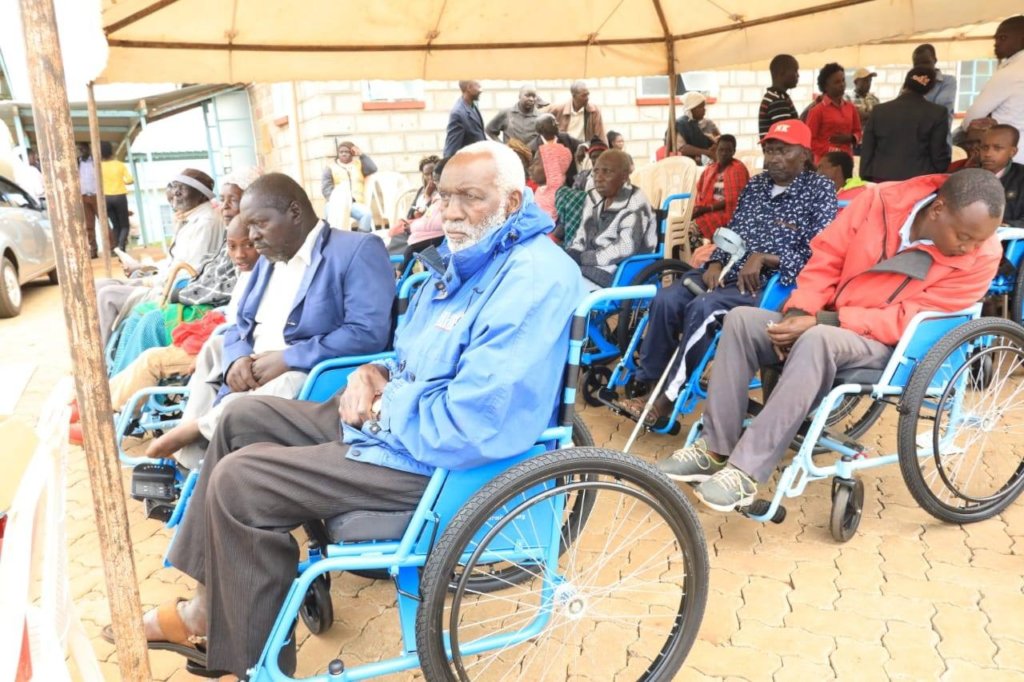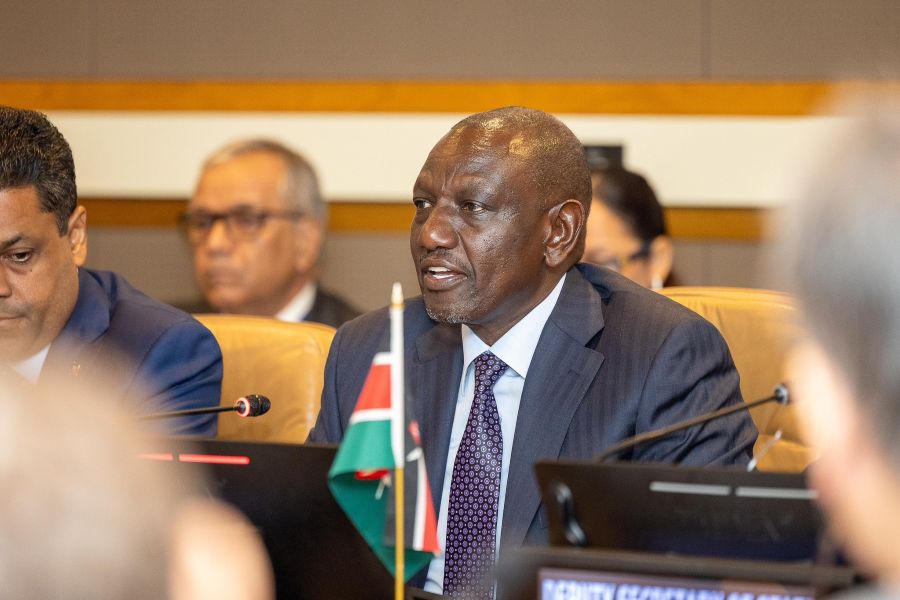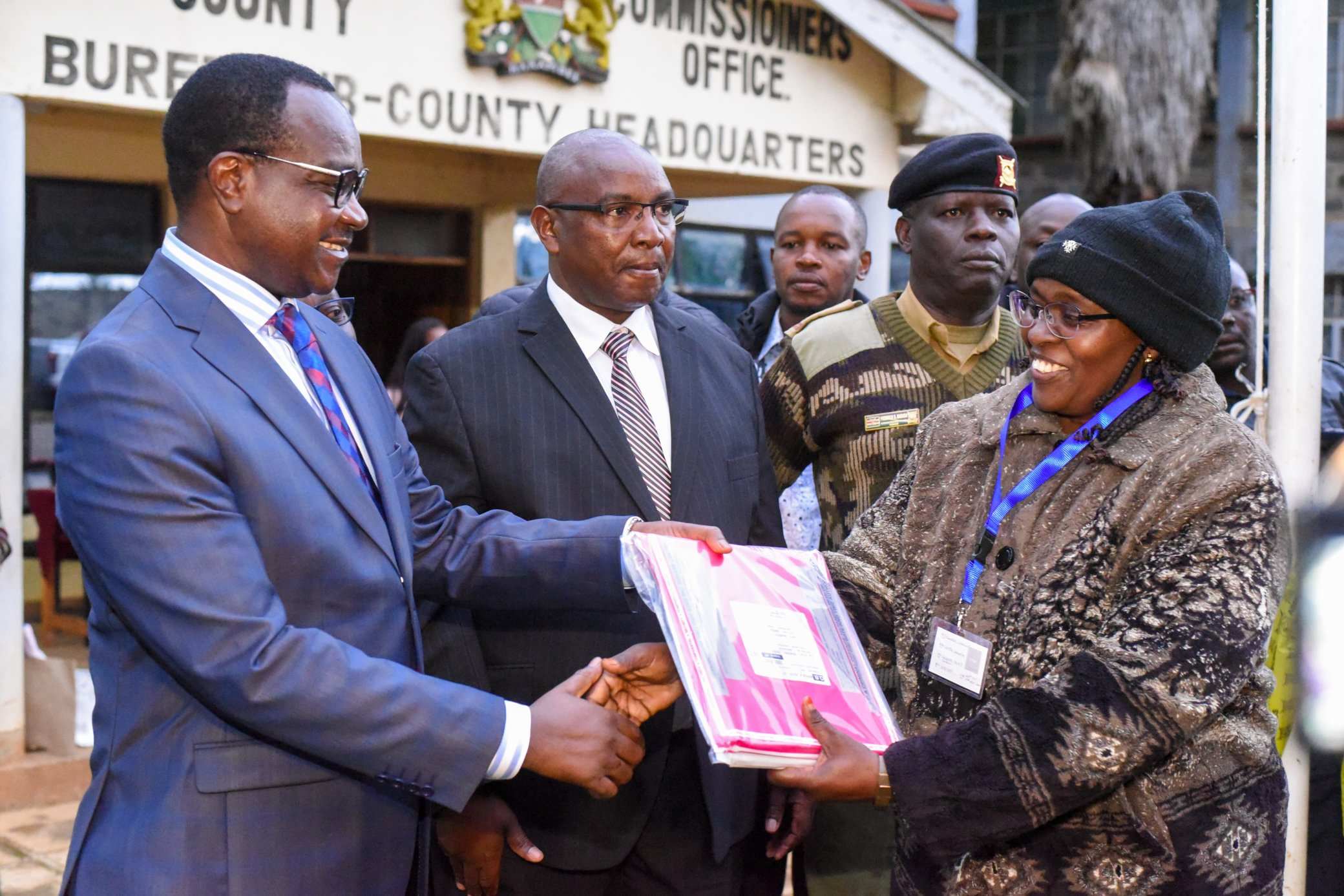Persons with disabilities significantly less included in financial access - report

Only 77.9 per cent of them having access to financial services, compared to the national average of 84.8 per cent.
Persons with disabilities (PWDs) in Kenya are facing significant barriers to financial inclusion, with only 77.9 per cent of them having access to financial services, compared to the national average of 84.8 per cent.
This is according to the latest '2024 FinAccess Household Survey' by the Central Bank of Kenya (CBK), the Kenya National Bureau of Statistics (KNBS) and the Financial Sector Deepening Trust Kenya.
More To Read
- Persons with Disabilities Act 2025 explained: Mocking PWDs punishable by law
- MPs push for faster completion of disability equipment factory to improve access to learning materials
- Northern Kenya PWDs chairperson sounds alarm over lack of autism support
- MPs accuse Agriculture and Food Authority of ethnic bias, discrimination against PWDs
- KWS proposes free park entry for elderly, PWDs and tourism workers
- Senators grill Mombasa governor over poor accessibility to public buildings for PWDs
The report notes that the disparity pictures the ongoing challenges that PWDs encounter in accessing financial products and services that can improve their economic well-being.
Consequently, only seven per cent of this demographic was deemed to be financially healthy, indicating that a large portion of it remains underserved by the financial sector.
"This limits their ability to build financial security and resilience," the report reads.
Among the respondents who reported having any form of disability, 77.9 per cent had access to formal financial services while 7.6 per cent had access to informal financial services only and 14.5 per cent were excluded.
Most of the financially included respondents reported current usage of mobile money (69.5 per cent), followed by bank usage at 38.7 per cent, and informal group usage at 24.9 per cent. 19.3 per cent were insurance users.
Generally, according to the report findings, only 18.3 per cent of Kenyans are financially healthy in the current review year, an increase from 17.1 per cent in the previous survey in 2021.
However, the record is still shy of the pre-Covid level of 39.4 and 21.7 per cent in 2016 and 2019, respectively.
Digital innovations
Nevertheless, findings from the survey reveal an increase in formal financial access to 84.8 per cent, driven by digital innovations and regulatory reforms.
Despite the increase in the review year, 9.9 per cent of Kenyan adults reportedly remain financially excluded, with rural youth forming nearly half of this group (45.5 per cent).
It attributes the exclusion to key barriers such as the inability to afford a phone (64.1 per cent) and lack of Identity Card (51.5 per cent)."
Although there have been challenges in ensuring full inclusion of persons with disabilities (PWDs) in the financial sector, Kenya has made significant progress in promoting their inclusion in other areas.
According to a 2023-24 report by the National Council of Administration of Justice, the country has made commendable strides to include PWDs, particularly in access to justice and reduction of marginalisation.
The report highlights efforts by various players in the criminal justice system, government agencies, and advocacy groups to reduce the marginalisation and stigma faced by PWDs, paving the way for a more inclusive society.
Notably, the Kenya National Commission on Human Rights (KNCHR) has been at the forefront of this progress, broadening its focus on disability issues.
Over the past year, the commission handled multiple complaints and assisted individuals with varying disabilities.
More specifically, it offered support to "14 people with psychological or mental disabilities, five with hearing impairment, four with learning difficulties, three with epilepsy, three persons with visual impairment and one person with autism" during the period under review.
Top Stories Today












































